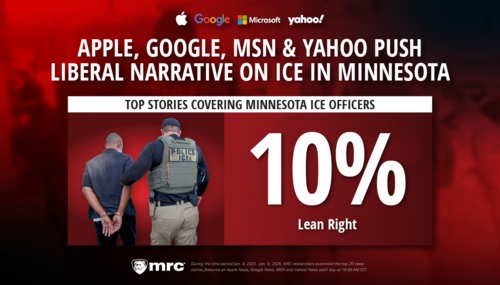Former president Jimmy Carter lied in an interview with NPR talk-show host Diane Rehm on Tuesday. She ended the interview by asking about the Tea Party and he claimed he had never criticized them -- despite smearing them as racists in 2009 in an NBC interview with Brian Williams:
REHM: Last question, very briefly, what do you think of the Tea Party movement?
CARTER: You know, I never have criticized the Tea Party movement because, strangely enough, I capitalized on the same kind of situation politically that has made the Tea Party successful -- that is, an extreme dissatisfaction with what was going on in Washington. Because I came along right after Watergate and right after the Vietnam lost and right after the assassination of the two Kennedy brothers and Martin Luther King, Jr., and so I capitalized on that, and I was elected over some very wonderful people who were U.S. senators and immersed in the Washington scene.
But Brent Baker reported on the NBC Nightly News on September 14, 2009, where Brian Williams touted how Carter clearly implied that that the tea-party movement wasn't sincerely conservative or libertarian, it just could not accept a black president:

CARTER:I think an overwhelming portion of the intensely demonstrated animosity toward President Barack Obama is based on the fact that he is a black man, that he's African-American. I live in the south and I've seen the south come a long way and I've seen the rest of the country that shared the south's attitude toward minority groups, at that time particularly African-Americans, that that racism [unintelligible word] still exists. And I think it's bubbled up to the surface because of belief among many white people, not just in the south, but around the country, that African-Americans are not qualified to lead this great country. It's an abominable circumstance and grieves me and concerns me very deeply.
Just before that exchange, Carter had restrained himself from any criticism of WikiLeaks, but Rehm encouraged him to trash Fox News Channel again. As usual, Rehm insisted that her biased shows are "civil discussion" and Fox is just a den of incivility:
REHM: However, the entire media landscape has changed. People point to the rise of the importance, for example, of the Internet. The rise and the importance of Fox News, the lack of – oh, I don't know, sort of general civic civil discussion.
CARTER: That began to change when I was president. That's when CNN was formed, the first cable news network, and it was formed in the last year that I was in office. So there was no 24 hours, seven days a week scrambling for headlines that quite often are derived from the most radical comments that you can make on television to titillate viewers and listeners. Back then, we had the three major networks. We had The New York Times. We had The Washington Post. We had the LA Times and so forth. And their evening news broadcasts -- and maybe some brief morning talk shows that were mostly entertainment -- were about the only news sources.
And during the day, you could get on the wire services if you had a ticker tape -- AP and UPI. And that was about it. Now, though, I think there is a radicalization of news presentation, not only with the news broadcast but with the commentators that are particularly vicious, I think, and damaging and irresponsible on Fox News, where they have presented an image that the American people have adopted to an excessive degree, that President Obama is not even a citizen of our country, that he's a Muslim and that he's a socialist and things of that kind...
REHM: But why do you think the American people have been open to receiving that kind of information and believing it?
CARTER: Well, the believing I can't explain 'cause I believe -- maybe it's some other side of the political spectrum that I shouldn't believe, but just because I want to believe it. But I think that's -- nowadays, the responsible news broadcasts -- I would include, still, the three major networks and maybe the Jim Lehrer show in the evening, which I always watch, and a few other commentaries are good.
But I think the -- if you look at the news broadcast for entertainment, then what you want to hear is radical, exciting, titillating reports, not only about the latest murders or kidnapping or sexual, you know, problems that people have, but the inclination on the part of the -- some of the channels just to make every news item as interesting in its presentation as possible. And that sometimes, that deviates from the honest objective truth.
Naturally, conservatives oppose the honest truth, Diane Rehm jumps immediately to defending her own supposedly objective forces at NPR and PBS and Carter insisted Fox wants the news biased, unlike the liberal outlets:
REHM: And, of course, now the Republican leadership has said, it wants to defund all of public broadcasting.
CARTER: I know, because the public broadcasting networks on radio and television basically tell the honest, objective truth. And, I think, the Republicans who say that would like for everybody to have one channel that they can watch every day, and that's Fox News. And, I think, it is sort of a deviation from that presentation of biased news, [it] is inimical of what they want to achieve.
This interview in itself demonstrated that NPR is not a place for civil discussion -- certainly not when it comes to assessing "vicious, damaging, and irresponsible" conservative media outlets.
Carter also insisted near the interview's beginning that he was disappointed that the Democrats did not campaign on the "objective" truth that ObamaCare was a terrific acheivement: "They didn't want to be associated with it when, actually, a cold and objective analysis shows that great strides forward were made."




